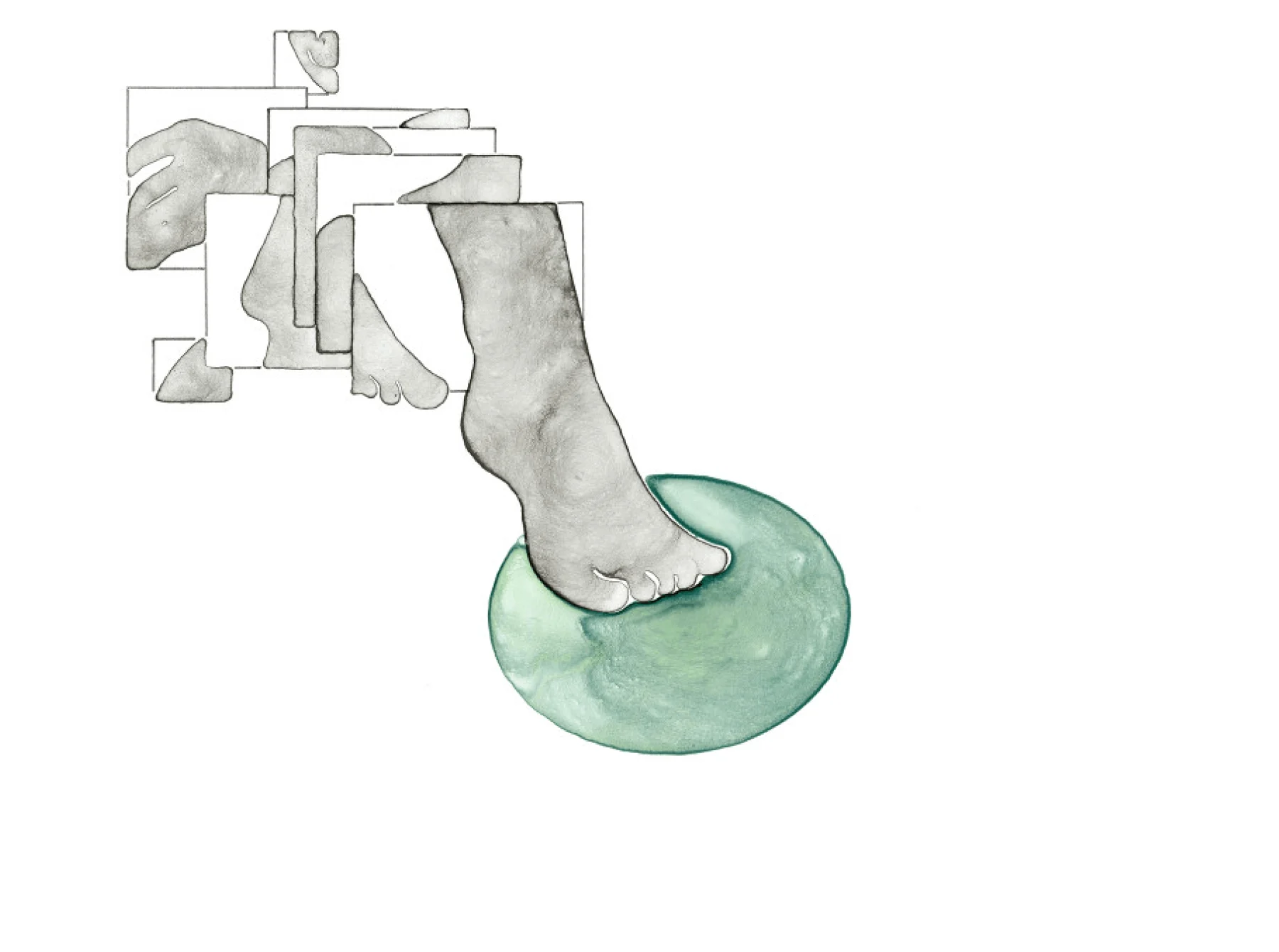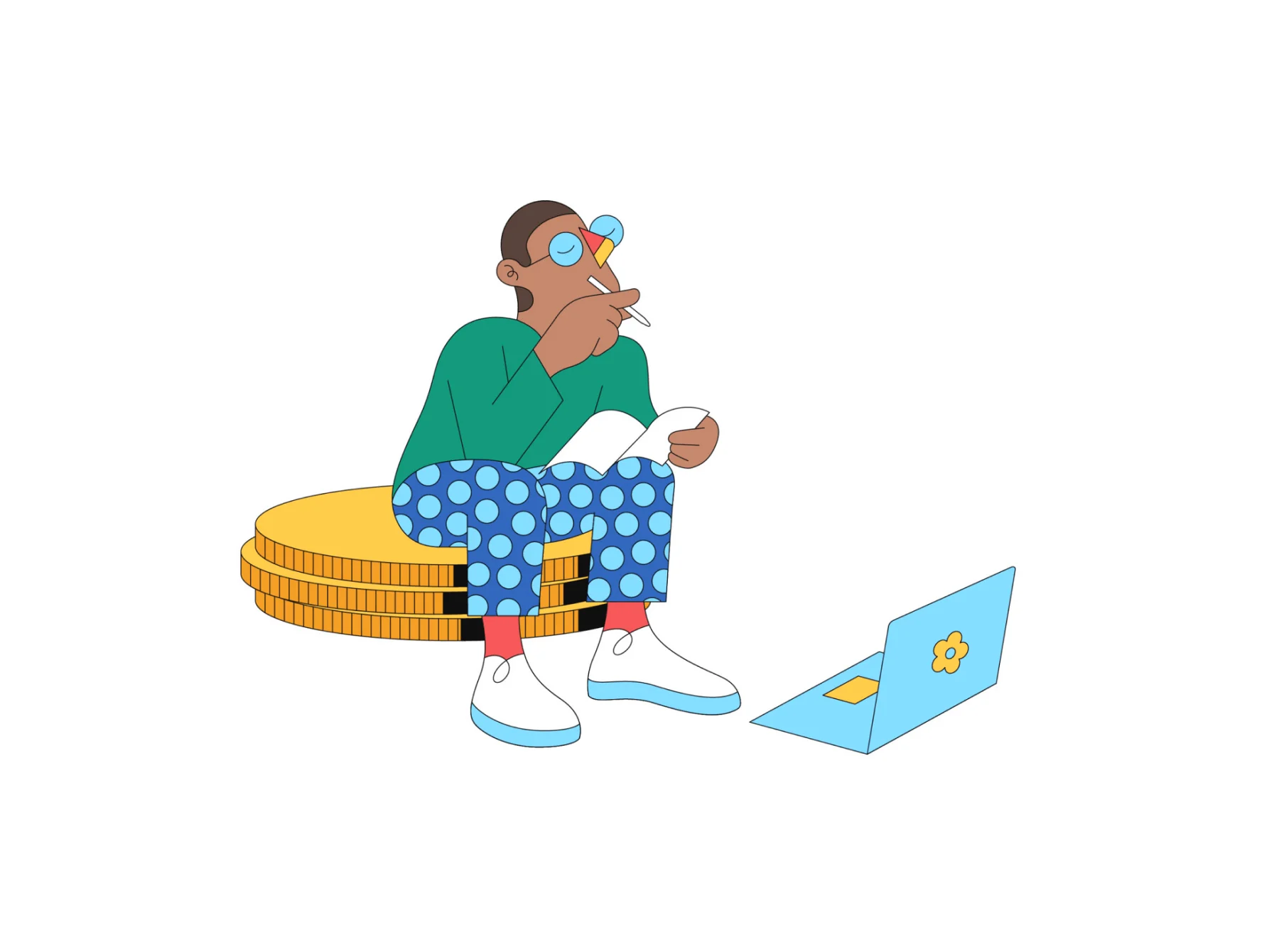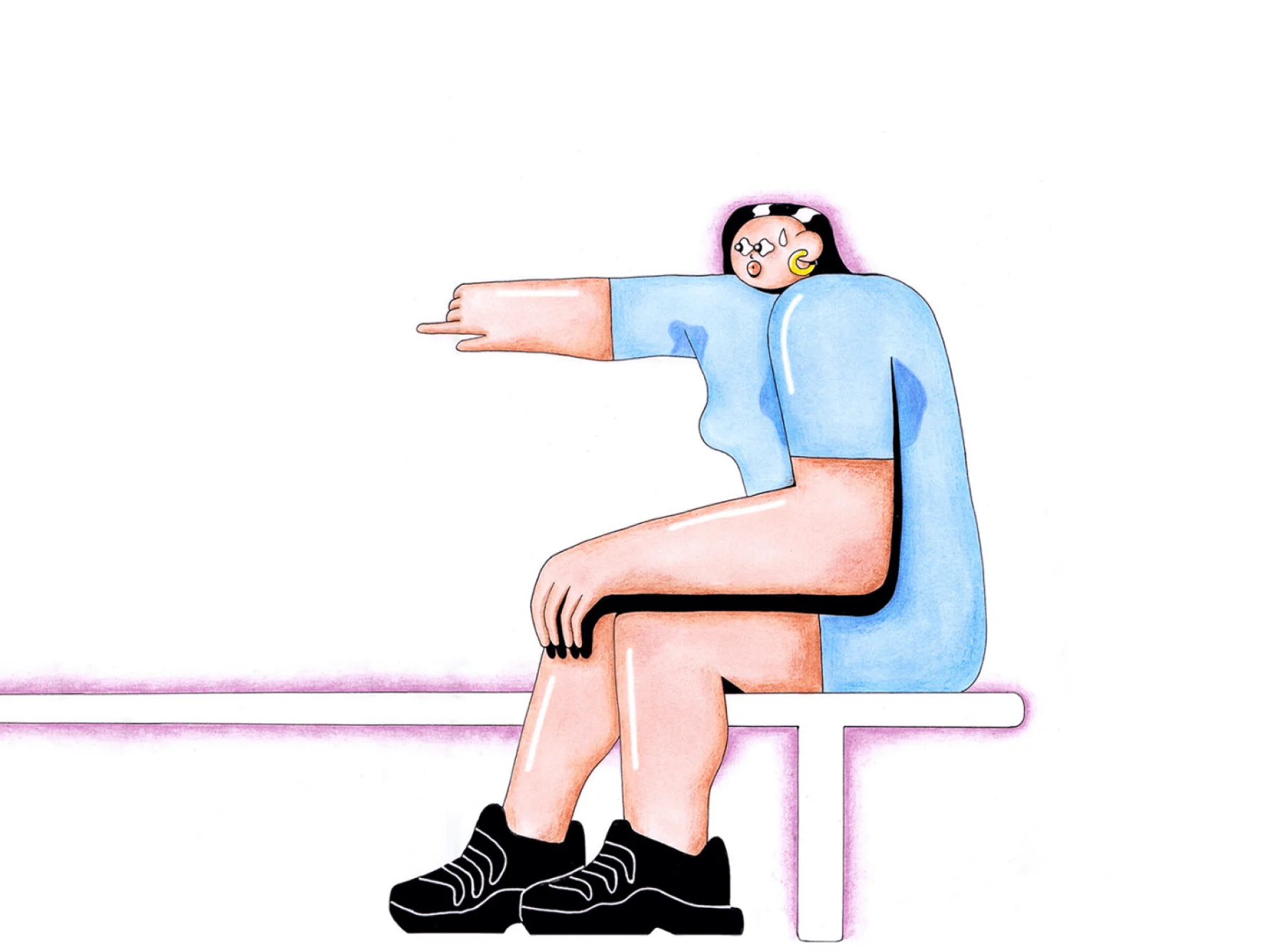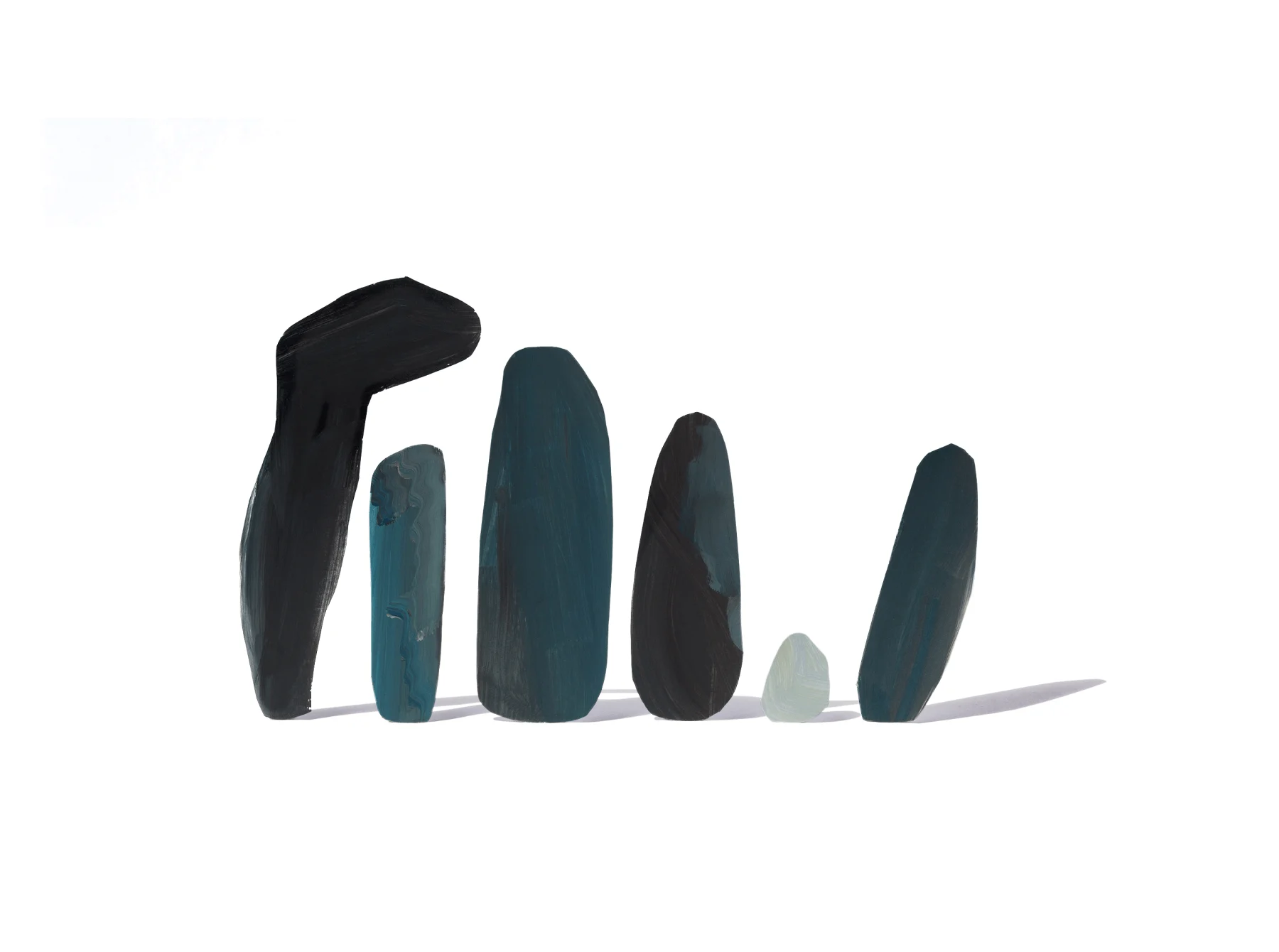
When you first start out in the creative industries, there is a lot of received wisdom. "This is how it works." "That’s just the way it is." But how true are these truisms? We partnered up with Lecture in Progress to look at six myths you often hear when it comes to creative careers and find out how true, if at all, they really are.
Animations by Alexis Jamet.
Myth 5: Extroverts have a better shot at success
There is so much noise that you need to be able to present your work confidently.
The modern-day creative has a lot to think about. First, there’s your work, portfolio and website. But then there’s everything else: curating a flawless social media presence, and not only showing up to events, but effortlessly networking your way around the room. Then there is giving spell-binding presentations to clients, and coming across confidently in interviews. For extroverts, this part is a breeze. Having great work is a given, but in the choppy waters of the creative industry, it helps to be naturally outgoing. Which probably isn’t brilliant news for the introverts of the world.
“I don’t seek out social situations, I’m not much of a networker. I’m too guarded, too worried about judgement, too worried about doing anything wrong.”
There is so much noise that you need to be able to present your work confidently.”
Speaking from his home studio in the English countryside, artist and photographer Luke Evans considers himself very much an introvert. It’s not immediately obvious, though. As someone who’s exhibited all over the world and given captivating talks to large audiences, Luke seems incredibly outgoing. “If you met me for the first time,” he acknowledges, “you’d think I have no qualms in talking about my work. You’d assume I was an extrovert. Definitely.”
So why the need to put on a front? “The process of making work is so introverted, at least for me,” he says, “but when opportunities are presented to me, I’ll go out there and put on a show. There is so much noise that you need to be able to present your work confidently.” Does he think you have to be an extrovert to be successful? “No…but it helps.”

We love an extrovert
It seems though that throughout history, extroverts really have done better, especially in the western world. Today, most Google searches on the topic will lead you to Susan Cain, the best-selling author behind seminal book, Quiet: The Power of Introverts in a World That Can’t Stop Talking. She points out how the west has long lauded the extrovert (described as the “man of action”) over the introvert (or “man of contemplation”).
But where does this western bias come from? For Susan, it dates back to the start of the 20th Century, when an economic and cultural shift forced people to move from small towns to cities. Workers began operating within large groups of strangers, so it was suddenly more important to be able to stand out in a crowd. You can guess who did a better job of that.
It’s not just a cultural preference we seem to have inherited. In 2018, clinical psychologist Linda Blair told Business Insider that being introverted or extroverted is tied up in our DNA – in an article that ends on the thoroughly unreassuring note that “you can’t change it.” Nice one.
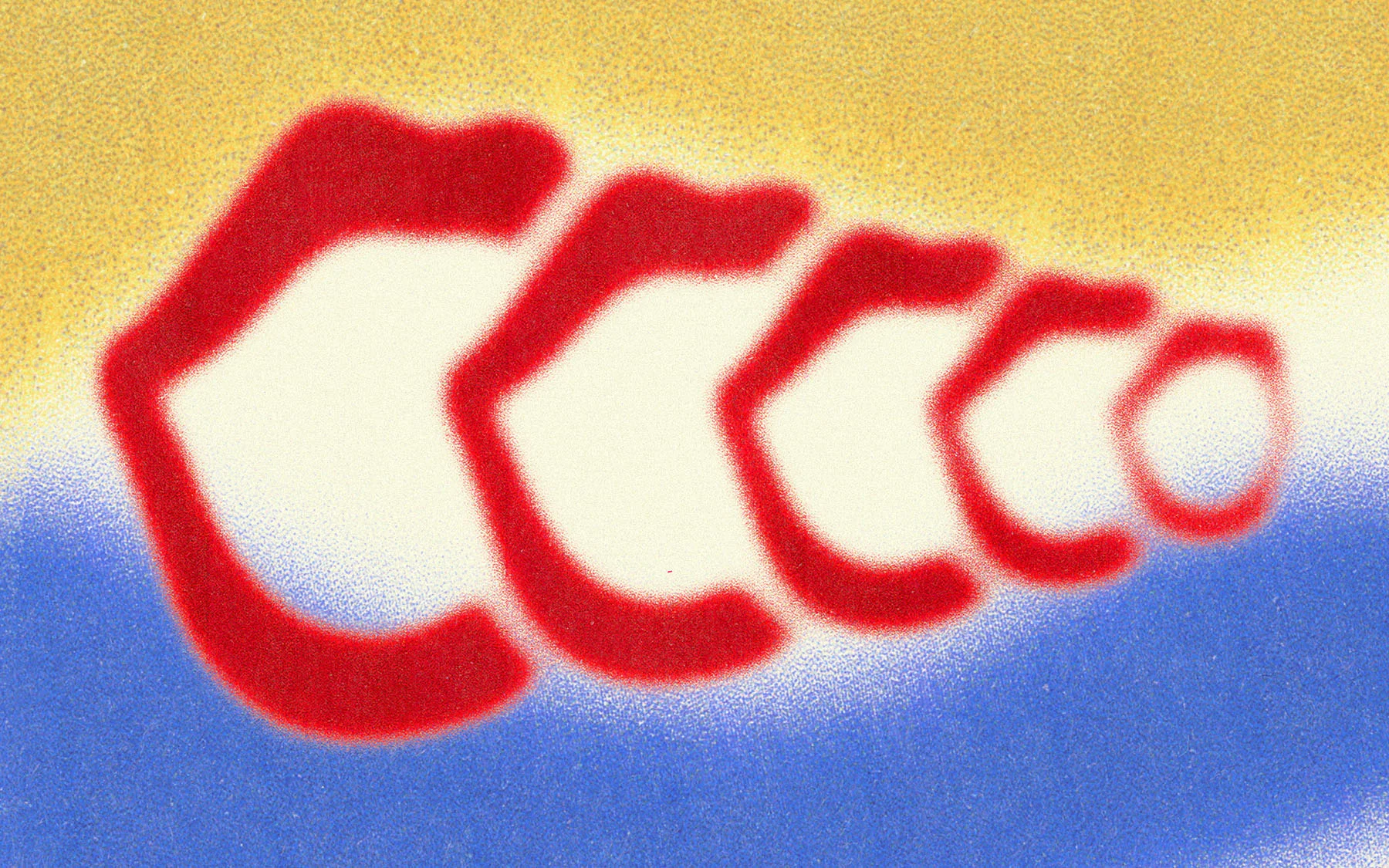
The sliding scale of ambiversion
Before you start feeling betrayed by your own DNA, there is some good news. Because the reality is that most of us are ambiverts, which basically means that we share both introverted and extroverted qualities. You know, like actual complex, three-dimensional humans .
So while it’s true that we naturally identify more strongly with one personality trait over the other, we’re all at different points on a sliding scale. Even philosopher Carl Jung, who came up with the introvert-extrovert terms in the 1920s, admitted that “There is no such thing as a pure introvert or extrovert. Such a person would be in the lunatic asylum. ”
Introversion isn’t something to ‘fix’
This doesn’t change the fact that to be on the more introverted side of the scale can still feel like a problem . “I wish I could communicate with people more immediately, and present my opinion more freely,” says up-and-coming Seoul-based illustrator, Ram Han, “ I don't want to be seen as a different person.”
While she recognizes that communicating confidently with clients is vital, her work is “deeply affected” by her personality, her “awkward and shy” demeanour. “I sometimes put that feeling in my work; a sense of isolation and alienation.” It also means she works more carefully, uses her time efficiently and overall has “less to regret.” Ram’s introversion is a strength, not a weakness.

Sharing versus shouting
Doing great work and chucking the spotlight on it is the toolkit you need to make your way in any industry.
For Mark Denton, “doing great work and chucking the spotlight on it is the toolkit you need to make your way in any industry.” Describing himself as a self-made extrovert, the creative director has won countless awards and given talks to sell-out crowds sporting tracksuits with “DENTON” emblazoned across the back.
Mark started his career as a junior creative making good work, but never saying a word in meetings and being repeatedly overshadowed by his more confident creative partner. So he bought some self-help books, put his learnings into practice, and went from one extreme to another. “Grabbing the spotlight opens more doors. It gives you a longer career and puts your wages up. Why wouldn’t you want that?”
But while it’s one thing to shout about your work, you have to make sure it’s worth shouting about, too. For LA-based designer and developer, Shane Mielke, it’s best to wait until you know what you want to say before you pick up the loudspeaker. At the start of your career, “You kind of need to sit down, shut up and just learn.” Shane did just that, and when he finally released his first portfolio site, it won him multiple awards.
For other creatives, it's a case of finding the right platform. While it has its shortcomings, social media does have the power to amplify voices that might not be so forthcoming face-to-face. “My personality is in my work,” says Brighton-based artist and illustrator Sophy Hollington; “It’s where I’ve been most comfortable expressing myself.” Posting her linocut prints to an audience of over 24,000 followers, Instagram gives her control over her image in a way that the unpredictability of giving a talk, for example, might not. Sharing can be scary though, and Sophy isn’t without her anxieties – “I do sometimes get stage-fright before putting things up” she admits.
Finding your own stage
The advantages that come with being more extroverted are clear. But honestly? It just doesn't matter. Don’t get caught up on labels, or DNA results.
You don’t need to undergo some kind of personality transplant to have a successful career; just get to know yourself better. The secret is in recognizing which traits benefit certain situations. Because as it turns out, the creative industry loves a good ambivert.



